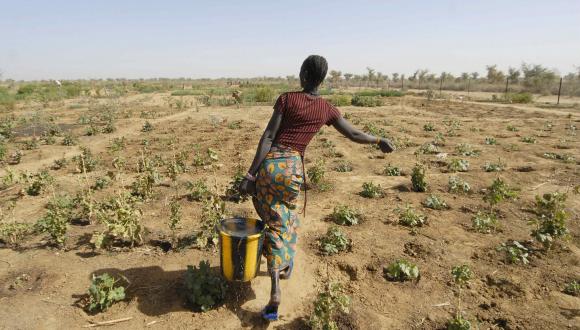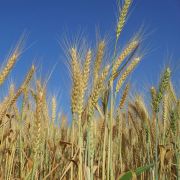Harnessing Israeli Innovation for Sustainable Growth in Africa
Despite vast swaths of uncultivated arable land and an abundance of natural resources, Africa is home to 75 percent of the world’s poorest countries. That's why sustainable growth on the continent has been the focus of major aid organizations — including USAID and the World Bank — for decades.
An annual program launched by Tel Aviv University's Pears Program for Global Innovation is harnessing Israeli technology and innovation to create practical solutions on the ground in Africa. This year's Pears Challenge for Innovation and International Development is focused on small farmers in Kenya, addressing challenges in the supply chains for small farms.
"At the Pears Program, we are working towards the goal of making Israel an important source of innovative solutions for the developing world," said Pears Program Director Dr. Aliza Belman Inbal. "The power of the private sector is so much greater today than that of the public sector, and Israel is a hub of expertise in agriculture, water treatment, renewable energy, and information and communication technology. We're leveraging this enormous power for tangible change."
"Giving back" to society and the world
Israel is already well known throughout Africa as a leader in agriculture, making it easier to establish productive collaborations with local partners.
Nearly 100 applicants, most of them experienced business people and entrepreneurs interested in "giving back" to society, applied to be one of the 18 participants eventually selected for the annual program. In the course of the eight-month Challenge, entrepreneurs submit ideas, participate in brainstorming sessions exploring challenges and opportunities, study different business models for emerging markets, participate in "hackathons," and connect with government, aid agency, and agriculture partners in Africa.
This year's entrepreneurs with the most promising development solutions will then journey to Kenya to further test and develop their ideas and to network with Kenyan agritech entrepreneurs. After returning, participants will have access to grants and to advisory and networking support for as long as it takes to transform their ideas into successful ventures.
Partnerships for innovation
"There are over a dozen accelerators and incubators in Nairobi," said Dr. Inbal. "Our specific objective is to develop sound connections between entrepreneurs and innovators in Israel and Kenya to develop appropriate tech solutions for the needs of small farmers there.
"Kenyans bring to the table a deeper understanding of the needs and attributes of the local market, and Israelis bring business and technology management experience to the table," Dr. Inbal continued. "This is a truly unique synergy. There isn't anything remotely like our project anywhere. We invite participants with real experience in entrepreneurship and innovation to use their skills to have real impact on the lives of the global poor. We are teaching people how to listen to the needs of local partners. No one at Pears takes one look at a Kenyan farm and just says, 'Oh yeah, I know how to fix this.'"
Every year, the theme and focus of the Challenge change. Last year's program winners were Israeli creators of a "mini-farm" able to grow vegetables anywhere with a self-sustaining internal loop of energy and nutrition. Next year, the Challenge will focus on medical technologies.
As originally reported by AFTAU.






